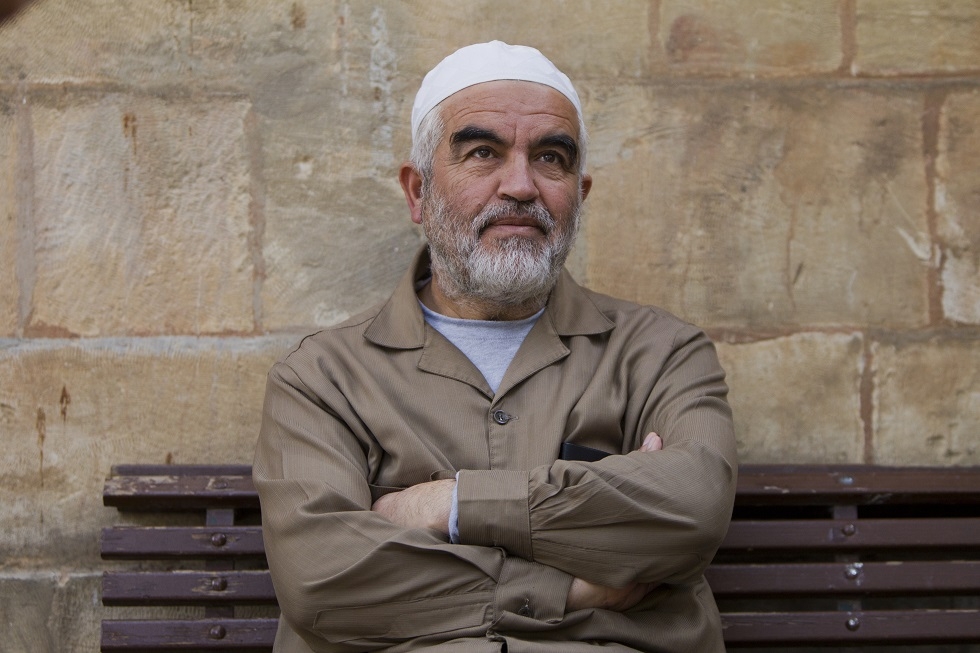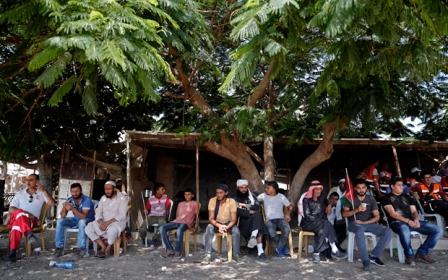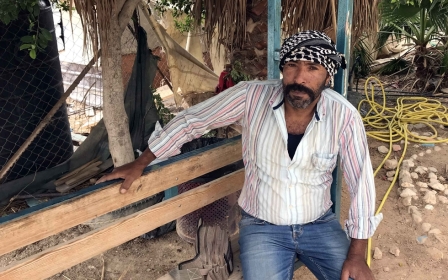Islamic Movement leader moved to house arrest in Israel after months in solitary

The Israeli magistrates court in Haifa on Friday approved the conditional release of Raed Salah, the leader of the Islamic Movement and prominent Palestinian political figure, placing him under house arrest.
The court refused the Israeli public prosecutor's appeal, which if passed would have delayed Salah's release.
Khaled Zbarqa, Salah's lawyer, told Middle East Eye that Salah had spent 11 months in solitary confinement in an Israeli jail since he was arrested on 25 August 2017.
He was accused of 12 charges, including "inciting terror".
Salah is now under house arrest in Kafr Kanna, a village in Galilee to the north of the city of Nazareth. Hundreds of Kafr Kanna residents welcomed Salah with banners bearing the message "Welcome in our houses".
Zbarqa told MEE that the court imposed a number of conditions for Salah’s release, including a ban on entering his hometown of Umm Al-Fahm, and placed restrictions on his movement.
"He is banned from accessing tools of communication, including telephones, the internet and social media sites, speaking to the press and he must wear an electronic tag. Only his first- and second-degree relatives can visit him."
Zbarqa added that Salah's trial was political and there was no basis for the court charges.
Israel banned the Islamic Movement, one of the biggest political movements among Palestinian citizens of Israel, in 2015.
Salah's next court hearing will be at the end of July.
New MEE newsletter: Jerusalem Dispatch
Sign up to get the latest insights and analysis on Israel-Palestine, alongside Turkey Unpacked and other MEE newsletters
Middle East Eye delivers independent and unrivalled coverage and analysis of the Middle East, North Africa and beyond. To learn more about republishing this content and the associated fees, please fill out this form. More about MEE can be found here.





